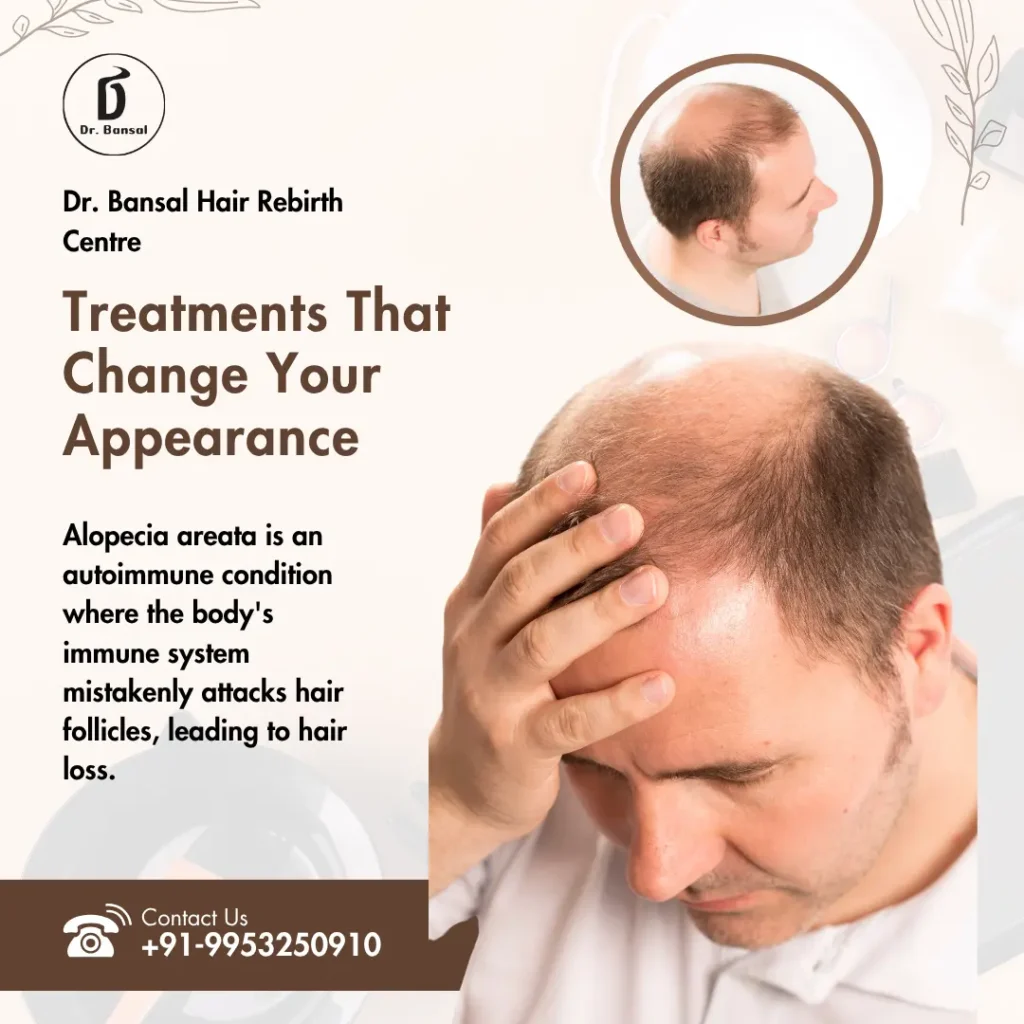How to Stop Alopecia Areata from Getting Worse: Effective Strategies and Treatments
Thank you for reading this post, don't forget to subscribe!Alopecia areata is an autoimmune condition where the body’s immune system mistakenly attacks hair follicles, leading to hair loss. This condition can manifest as small, round patches of hair loss on the scalp or other areas of the body. While the exact cause remains unclear, factors such as genetics, stress, and immune system dysfunction are believed to play a role. If you’re experiencing alopecia areata, it’s crucial to take proactive steps to prevent the condition from worsening. Here’s a comprehensive guide on how to stop alopecia areata from spreading and manage its progression effectively.
1. Seek Professional Medical Advice
Consulting with a dermatologist or trichologist is the first and most important step. These specialists can assess the severity of your condition, identify potential triggers, and recommend appropriate treatments. Early intervention can significantly improve outcomes and prevent further hair loss.
2. Manage Stress Effectively
Stress is a known trigger for alopecia areata flare-ups. Implementing stress-reducing techniques can help manage the condition:
- Mindfulness and Meditation: Practicing daily mindfulness or meditation can reduce stress levels.
- Regular Exercise: Engaging in physical activity helps lower cortisol levels, the body’s primary stress hormone.
- Adequate Sleep: Ensuring 7–9 hours of quality sleep each night supports overall health and stress management.
3. Adopt a Nutrient-Rich Diet
A balanced diet rich in essential nutrients supports hair health and may help prevent alopecia areata from worsening:
- Zinc: Found in foods like oysters, pumpkin seeds, and chickpeas, zinc aids in hair follicle repair.
- Iron: Sources include spinach, red meat, and lentils; iron promotes oxygen delivery to the scalp.
- Vitamin D: Present in fatty fish, fortified dairy products, and egg yolks; vitamin D plays a crucial role in hair follicle cycling.
- Omega-3 Fatty Acids: Found in fatty fish, walnuts, and flaxseeds; omega-3s reduce inflammation.
Incorporating these nutrients into your meals can enhance hair vitality and support growth.
4. Consider Medical Treatments
Several medical treatments have shown promise in managing alopecia areata:
- Corticosteroid Injections: Administered by a healthcare professional, these injections can help reduce inflammation and stimulate hair regrowth.
- Topical Minoxidil: Over-the-counter treatments like minoxidil can promote hair growth and are often used in conjunction with other therapies.
- Oral Medications: In some cases, oral medications may be prescribed to suppress the immune response affecting hair follicles.
It’s essential to consult with a healthcare provider to determine the most suitable treatment plan for your specific condition.
5. Explore Low-Level Laser Therapy (LLLT)
Low-Level Laser Therapy (LLLT) is a non-invasive treatment that uses red or near-infrared light to stimulate hair follicles and promote hair growth. Studies have shown that LLLT can be effective in treating alopecia areata, with some patients experiencing significant hair regrowth.
6. Avoid Smoking and Limit Alcohol Consumption
Smoking and excessive alcohol intake can exacerbate inflammation and impair blood circulation, potentially worsening alopecia areata. Quitting smoking and moderating alcohol consumption can improve overall health and may help prevent the condition from spreading.
7. Implement Gentle Hair Care Practices
Harsh hair care routines can damage hair follicles and exacerbate hair loss. Consider the following practices:
- Use Mild Shampoos: Opt for sulfate-free shampoos to reduce scalp irritation.
- Avoid Tight Hairstyles: Styles that pull on the hair can cause traction alopecia.
- Limit Heat Styling: Excessive use of hair dryers and straighteners can weaken hair strands.
8. Stay Informed About New Treatments
Research into alopecia areata is ongoing, and new treatments are continually being explored. Staying informed about advancements can provide additional options for managing the condition. For instance, the FDA has approved medications like baricitinib for the treatment of alopecia areata, offering hope for individuals with severe cases.
9. Seek Support and Counseling
Dealing with alopecia areata can be emotionally challenging. Connecting with support groups or seeking counseling can help manage the psychological impact of the condition. Sharing experiences and coping strategies with others facing similar challenges can provide comfort and encouragement.
10. Consider Non-Surgical Hair Replacement Options
For individuals experiencing significant hair loss, non-surgical hair replacement options like wigs or hairpieces can provide a temporary solution while undergoing treatment. These options can help restore confidence and improve quality of life during the treatment process.
Conclusion
While alopecia areata can be a challenging condition, taking proactive steps can help prevent it from worsening. By seeking professional medical advice, managing stress, adopting a nutrient-rich diet, considering appropriate treatments, and implementing healthy lifestyle practices, individuals can effectively manage alopecia areata and reduce its impact. Remember, early intervention and consistent care are key to stopping alopecia areata from spreading and promoting hair regrowth.
For personalized advice and treatment options, consider consulting with a specialist at Dr. Bansal Hair Rebirth Center or contact them at +91-9953250910.

